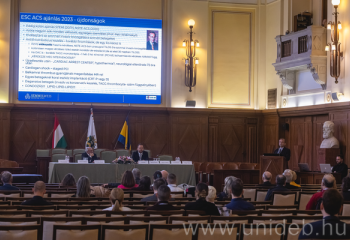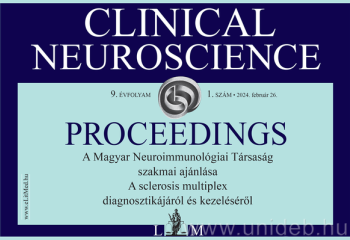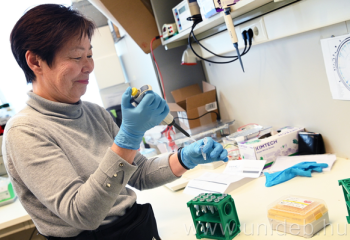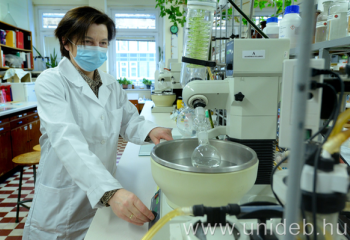A new type of fluorine-containing compounds chemically related to antitumour and antiviral agents, produced at the University of Debrecen's Faculty of Pharmacy, could play a role in the treatment of many serious diseases in the future. The scientific article on this topic was selected as one of the flagship publications of January by the Department of Chemical Sciences of the Hungarian Academy of Sciences.
News

In addition to coronary heart disease, heart failure and cardiac arrhythmias, the latest treatment options for comorbidities, including hypertension, diabetes and obesity, will be discussed by experts at the 29th Debrecen Cardiology Days, which started on Thursday. Around five hundred cardiologists, nephrologists, diabetologists and general practitioners are attending the meeting at the University of Debrecen.

The Hungarian Neuroimmunological Society has published its latest professional recommendation on the diagnosis and treatment of multiple sclerosis. The lead author of the recommendation is Tünde Csépány, Associate Professor at the University of Debrecen, specialist at the Neurology Clinic. By formulating the guidelines, the experts aim to help doctors choose the most effective therapy for their patients.

Leading members of CARPE (Consortium on Applied Research and Professional Education) met in Brussels over the weekend. Representing the University of Debrecen, Deputy Rector for Research and Education László Csernoch and Scientific Director Zsolt Varga attended the meeting.

The partnership between the Faculty of Science and Technology of the University of Debrecen and the Almaty al-Farabi Kazak National University has reached yet another successful stage. For six months, a researcher from one of Kazakhstan's leading higher education institutions prepared DNA extraction and quality control of tissue samples of rare plants collected in Kazakhstan and brought back to the DE laboratory.
